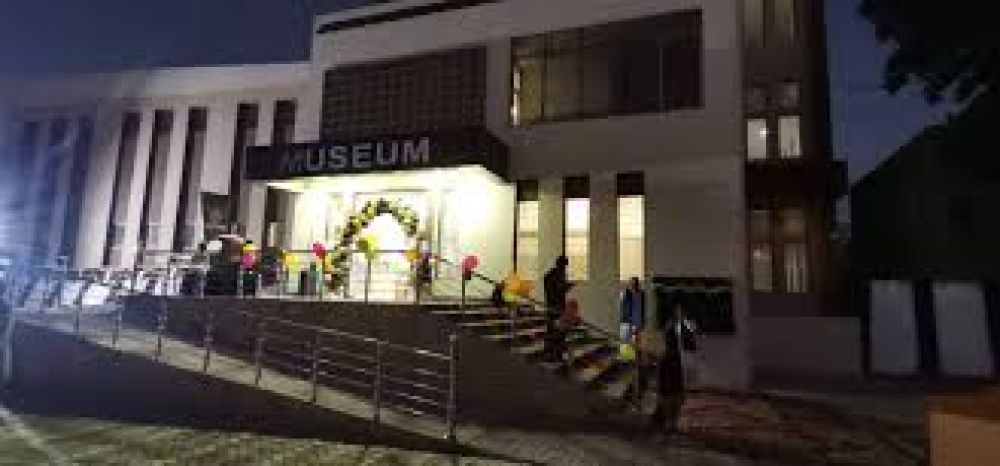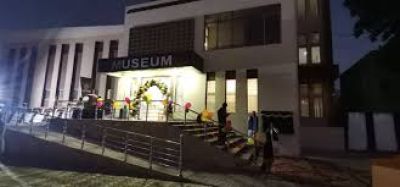

Embark on a historical journey at the Quetta Archaeological Museum with its intriguing Ancient Artifacts Exhibition. This exhibit showcases a myriad of artifacts excavated from the Balochistan region, dating back to the prehistoric period and the Indus Valley Civilization. Visitors will find a captivating array of items including pottery, coins, tools, and sculptures that tell tales of the region's rich history and ancient trade routes. The artifacts are carefully preserved and presented with detailed descriptions, highlighting the skill and artistry of early civilizations. Engaging informational signs and multimedia presentations provide context to the historical significance of each piece, ensuring an educational experience. This exhibition is a must-see for history buffs and offers a profound understanding of the archeological heritage of Pakistan.
Quetta Archaeological Museum provides a fascinating Ethnological Gallery Tour, offering a glimpse into the traditional lifestyles of the indigenous tribes of Balochistan. The extensive collection includes tribal costumes, jewelry, arms, and musical instruments, revealing the cultural diversity and rich folklore of the area. Each display is a vibrant expression of the tribal heritage, from the delicate beadwork and embroidery to the robust weaponry and tools. With immersive exhibits that replicate tribal dwellings and scenes from daily life, visitors can visualize the history and customs of these communities. The gallery doesn't just present artifacts; it narrates the stories of the people who crafted and used them, forging a connection with the past and preserving the ethnological history for future generations.
The Quetta Archaeological Museum houses a remarkable Numismatic Collection that is a treasure trove for numismatists and amateur historians alike. The collection boasts an extensive range of ancient coins, offering insights into the economic systems, trade, and governance of erstems that spanned across the Balochistan region throughout various historical eras. The coins vary in material, from precious metals like gold and silver to bronze and copper, and originate from different ruling empires, including the Greeks, Persians, and subsequent Islamic dynasties. Each coin is meticulously displayed with detailed explanations, shedding light on its historical context, minting process, and significance. The Numismatic Collection Viewing is a journey through time, illustrating the evolution of currency and its role in shaping civilizations.
The Quetta Archaeological Museum's Paleontological Displays are a portal to prehistoric times when majestic creatures roamed the Earth. Offering more than just a glimpse into the past, this exhibition features fossilized remnants and bones of ancient animals that once inhabited the Balochistan region. The displays include detailed reconstructions and preserved fossils of various species, providing an educational and exciting experience for visitors of all ages. The museum takes great care in presenting these exhibits with scientific accuracy, accompanied by engaging descriptions that explain the significance of these discoveries and the tales behind each fossil's excavation. Whether you're a student, researcher, or a curious traveler, the Paleontological Displays promise an enriching encounter with the ancient past.
The Sculpture Gallery Visit at the Quetta Archaeological Museum is an exhibition dedicated to the artistic expressions carved from stone and metal by ancient civilizations. The gallery displays a remarkable collection of sculptures, reliefs, and statues, each reflecting the religious beliefs, cultural practices, and artistic aspirations of their creators. Visitors will observe sculptures of deities, mythical creatures, and influential historical figures, alongside intricate stonework that details everyday life and spiritual rituals. The gallery provides a silent narrative of the region's past, expressed through the skill and imagination of long-gone artists. Each piece in the Sculpture Gallery is a testament to human creativity and an invitation for visitors to contemplate the enduring legacy of ancient artisans.
At the Quetta Archaeological Museum, the Historical Manuscripts Review grants visitors access to the intellectual wealth of bygone times. This activity involves perusing a variety of ancient texts, scrolls, and documents that have been carefully preserved. The manuscripts cover a wide array of subjects including history, science, philosophy, and literature, reflecting the vast intellectual pursuits of historical eras. The review offers a unique chance to examine the illustrious calligraphy and intricate illuminations that adorn these pages, connecting visitors with the scholarly traditions of the region. Each manuscript tells its own story not only through the text but also through the materials and methods used, symbolizing the continuity of knowledge and the profound heritage of human thought.
The Quetta Archaeological Museum provides an in-depth Guided Historical Tour that serves as an immersive educational experience. Led by knowledgeable guides, this tour walks you through each section of the museum, offering a comprehensive overview of Balochistan's rich history. The guides bring to life the stories behind the artifacts, providing context and interpretation that might otherwise be missed. Visitors have the opportunity to ask questions, delve deeper into specific areas of interest, and learn about the significance of the various exhibits from those who know them best. The Guided Historical Tour is ideal for those who appreciate a personalized learning experience and wish to gain a deeper understanding of the region's archaeological and cultural heritage.
The Cultural Film Screening at the Quetta Archaeological Museum is an audio-visual venture that enhances the learning experience for visitors. Through the screening of thoughtfully produced documentaries and short films, the museum educates its audience on the historical, archaeological, and cultural aspects of Balochistan. Covering topics ranging from ancient trade routes and dynasties to local folklore and cultural traditions, each screening aims to provide an engaging narrative that complements the museum's physical exhibits. The films are usually showcased in a comfortable viewing area, complete with state-of-the-art audio-visual equipment, ensuring a high-quality experience. This activity is especially recommended for those who enjoy a cinematic approach to history and culture.
The Educational Workshops for Students at the Quetta Archaeological Museum offer a dynamic and hands-on approach to learning. Tailored to engage young minds, these workshops cover various topics such as archaeology, anthropology, and ancient crafts. Students have the opportunity to participate in activities like pottery reconstruction, basic archaeological digs, and script deciphering under the guidance of museum educators. Workshops are designed not only to impart knowledge but also to inspire a sense of curiosity and respect for historical preservation among the participants. For school trips and youth groups, these educational workshops can provide a valuable supplement to classroom learning and encourage an enduring interest in history and archaeology.
The Antique Jewelry Examination at the Quetta Archaeological Museum is a captivating activity for visitors fascinated by the lavish adornments of the past. The museum displays a fine collection of jewelry that includes necklaces, bracelets, rings, and earrings, each piece echoing the exquisite craftsmanship and aesthetics of ancient times. These objects are not mere trinkets but represent the social status, fashion, and technological advances of the civilizations they belonged to. During the examination, visitors can closely inspect the intricate designs and learn about the materials and techniques used to create these stunning works of art. The jewelry collection presents an invaluable insight into the luxury and finery of historical societies, highlighting the cultural importance of personal adornment through the ages.
